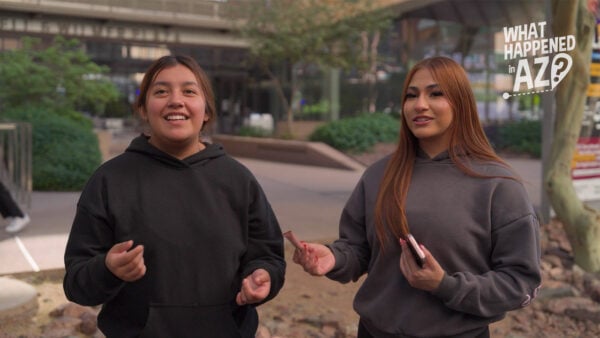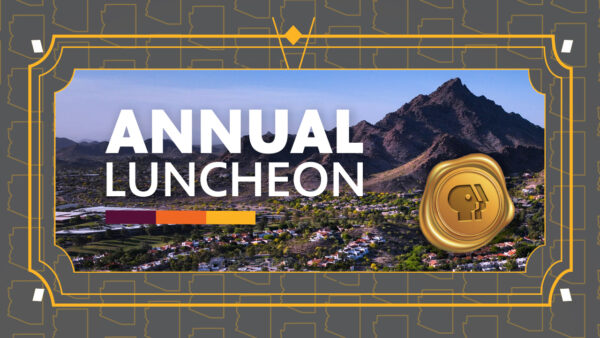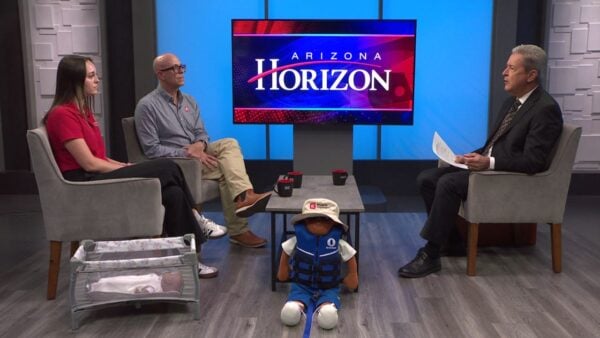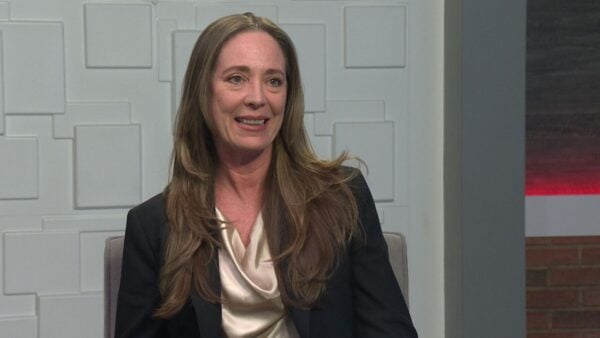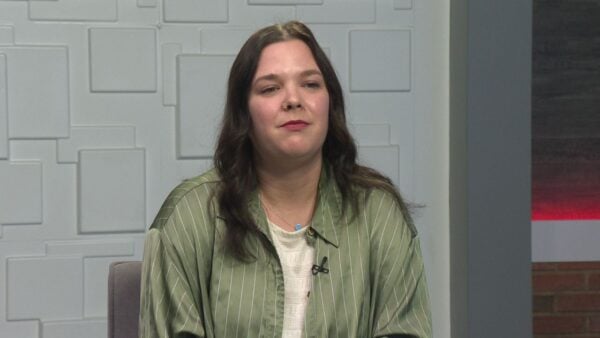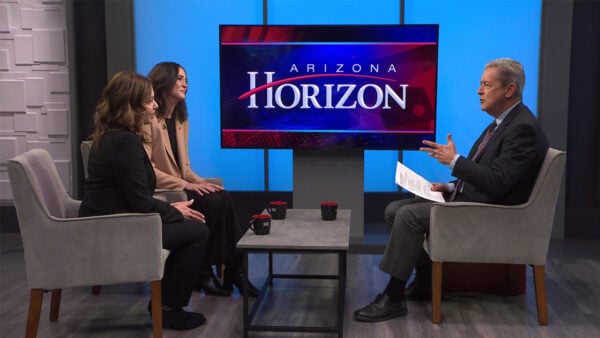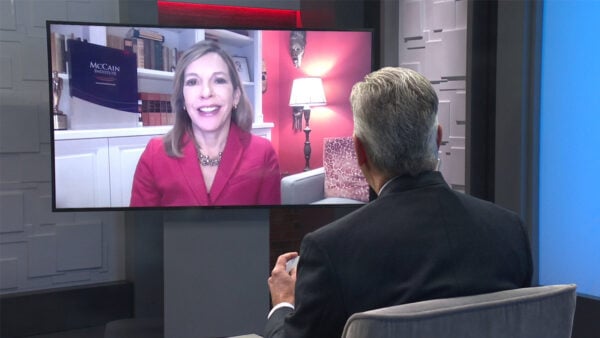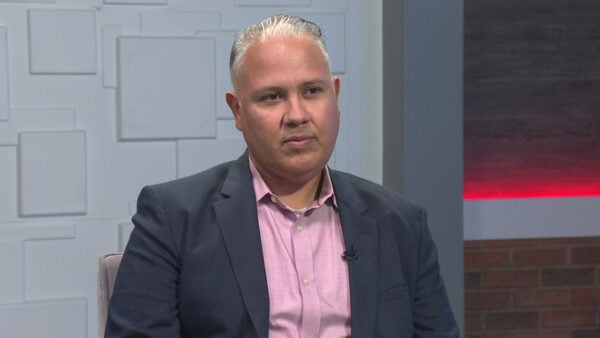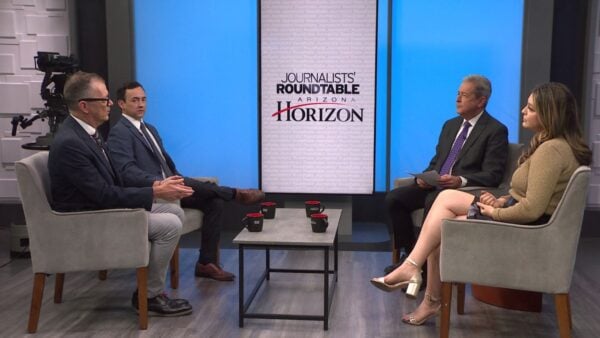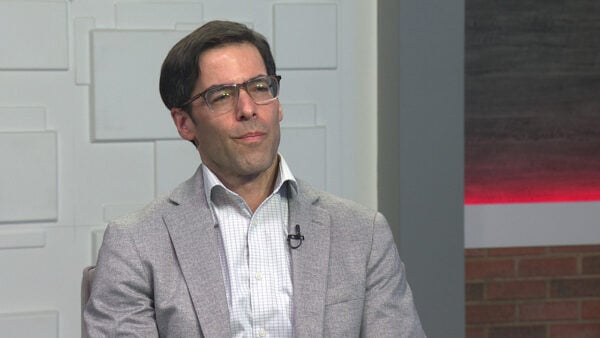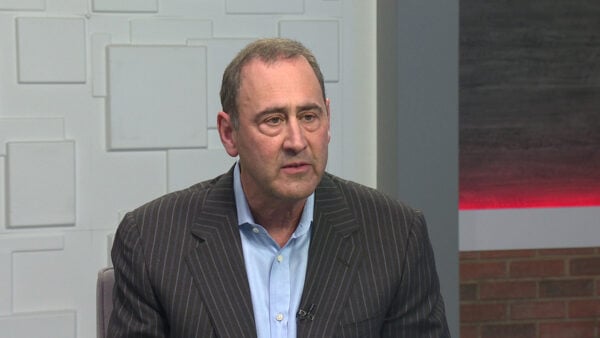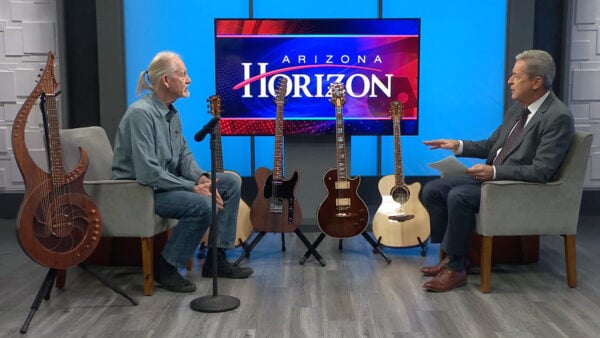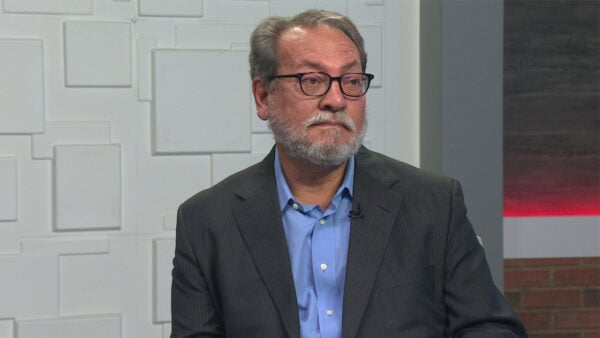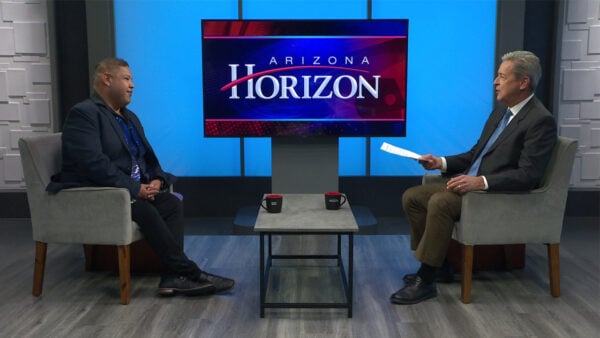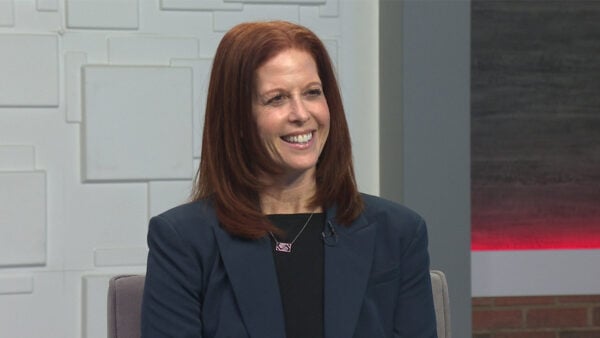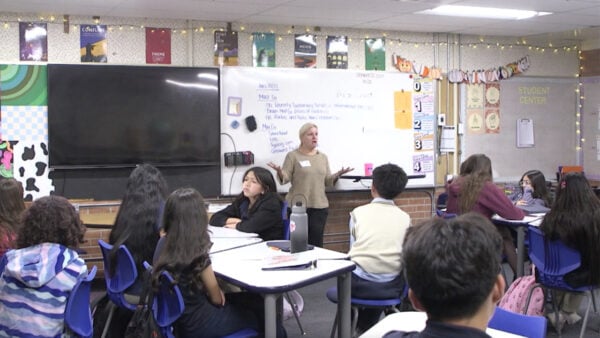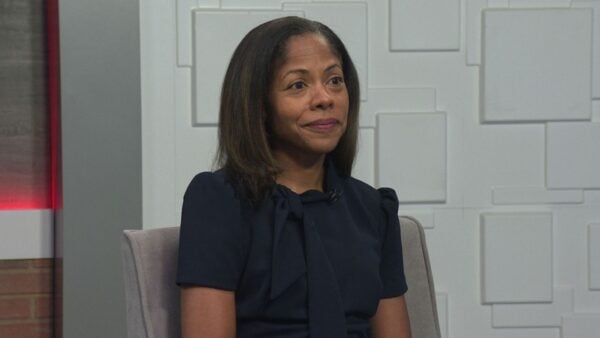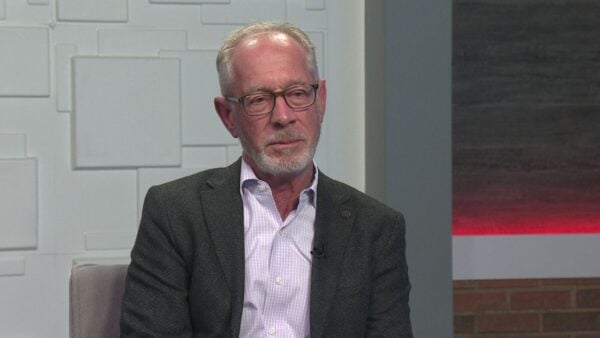Glenn Hamer, President and CEO of the Arizona Chamber of Commerce and Industry, and Tom Franz, President and CEO of Greater Phoenix Leadership, outline their organizations’ priorities for the current session of the State Legislature.
Ted Simons: The business community like the government has been hit hard by the recession. Here now to talk about their legislative agendas for 2010 are Glenn Hamer, president and CEO of the Arizona Chamber of Commerce, and Tom Franz, president and CEO of Greater Phoenix Leadership, an association that consists primarily of corporate CEOs. Good to have you here.
Tom Franz: Great to be here.
Ted Simons: Priorities for the legislative session, what are we looking for? Glenn, we'll start with you.
Glenn Hamer: We have to resolve the budget crisis and build a stronger economic future. They are bothtied together. Since this recession began Arizona has lost 10% of its workforce. We've been hit harder in terms of losing a percentage of our workforce than even states like Michigan. We have to walk and chew gum. We have to close our structural deficit while we put in place in the future a tax environment that is better in terms of creating jobs.
Ted Simons: How do you close the structural deficit?
Glenn Hamer: That's the $64,000 question. I want to first say that the governor and the state legislature already deserve a lot of credit for what they have done. We've been in a code red for well over a year. We're going to have to do additional spending reductions. I do believe that the legislature is going to need to refer a temporary sales tax measure to the ballot. And unfortunately, there's going to need to be additional borrowing.
Ted Simons: Do you agree that that sales tax needs to go to voters?
Tom Franz: My preference would be that they actually just pass the tax. I think Glenn's right. At the end of the day we are going to have to cut spending, raise revenue, borrow to get out of this fiscal year. Given where we are in the cycle, the fiscal calendar, there's no way to do it without using all those tools. The advantage to passing the tax is it goes into effect sooner, which generates the revenue sooner. So that would be the advantage to the legislature of doing that. If they aren't going pass it, then the referral would obviously be my second choice. But we need the revenue.
Ted Simons: The idea that is the house speaker's idea regarding the job recovery act. What are your thoughts there, regarding tax cuts, incentives for large employers, corporate tax cuts, individual tax cuts these sorts of things? Thoughts.
Tom Franz: I put the speaker's bill in two groupings. There's a grouping of economic development tools, if you will to, to help bring businesses in and drive the economy. I know there's a lot of business involvement with those and I think those are on the right track. My take on all the tax cuts is given our fiscal problems now. I would not support passing a tax cut that has a timeline on it. I think he's on the right track in some of his actions in the long run. But in the short run given how bad our fiscal situation is, and how we have been inaccurate in predicting what's going to happen I wouldn't want to put a date and time on a tax cut, given right now we don't have enough revenue.
Ted Simons: Indeed, Glenn, some folks are saying that this idea of tax cuts in 2012 to 2016, even that's too soon considering what's going on.
Glenn Hamer: Ted, the most important thing for any sort of tax reform package is for it to get the elements right. What I mean by that is that there are a couple of areas long identified as being very bad in terms of job creation. What I mean by that is our business property tax, which is the highest in the region, fifth highest in the country, and our corporate income tax which is regionally uncompetitive. And I give speaker atoms? A lot of credit for identifying those area. We are less interested in the taking effect this year or next year or the year after than getting the structure of this tax reform package right.
Ted Simons: The idea though that future tax cuts with shortfalls now and shortfalls into the foreseeable future, simply don't make sense. Democrats and critics bring this up on the program all the time. How do you respond?
Glenn Hamer: I respond that this state has been hard hit by this recession. There's no state in the country that has lost a greater percentage of its workforce since the great recession began two years ago. The speakers put a lot of time, he's worked with one of the most well-known and respected economists in the state in putting together a comprehensive program that not only deals with reforming Arizona's tax system but also deals with the economic development piece and deals with building base industry in this state. But we certainly are mindful of the points that Tom has made, that, you know, we are in a very difficult cash situation and we have to make -- we have to be very careful in terms of how this package is implemented and phased in.
Tom Franz: You have to separate the long-term from the short-term. In the long run what we want is to grow the economy, grow jobs, which by definition grows the tax base and allows us to provide services. That makes sense. The things in the long run we want to do I think are around economic development and a tax structure that promotes job growth because that helps the economy. The critics are talking about our here and now problem. In that case they are right in the sense that we can't afford to lose any revenue. In the long run though, you want to set it up so we are building new businesses and growing the economy. Because at the end of the day that's how we grow our way out of this.
Glenn Hamer: I just wanted to add, the Arizona Chamber of Commerce and Industry, we're the state affiliate for the National Association of manufactures, and the manufacturer's council is deeply appreciative that this package puts real focus on the importance of manufacturing in our state's economy. There's work to be done but there's excitement about where this measure could be going.
Ted Simons: I was going to say, it does seem to address these corporate issues. But it also calls for yet another individual income tax cut. I know Elliott Pollack did not mention that in his report, yet the speaker plan doesn't include this. We've had a continually decline in income tax rates here in the states for 20 some on years. Is this the best time to go with that?
Glenn Hamer: Ted, it is accurate that in terms of individual income tax rates, Arizona is very competitive. I believe aside from the states that don't have an individual income tax we may be number one on the list. I believe the reason why the speaker did that, it's something like 80% of the businesses that file under our tax code file under the portion of the code that is the individual income tax. I believe his thinking is that he wanted to put together a package that would be beneficial to businesses of every size.
Ted Simons: Education, the idea of getting a better educated workforce, we're going to talk a lot about this later on in tonight's program. What do you see the legislature doing, what would you like to see them do, especially with no money?
Tom Franz: There's a lot of things we can do in education that don't require money that reform the system one of the best things that's happened for the state is our race to the top application which went in this month. It actually brought together all the reform efforts that existed in the state, brought it under one umbrella, and kind of brought those pieces together so that we can try to implement a whole series of activities. There's actually bills in the house and Senate working together to generate a bill to enable that legislation to go forward and put some pretty significant reforms in place. At the end of the day, what we've got to do is move towards having the education system focused on outcomes. What we care about as business is an educated workforce, an educated populace a system that delivers those people and can give a wide range of options for postsecondary education. Jobs in the state are going require postsecondary education. So we have to get kids out of high school and graduated and give them opportunities to get certificates and A.A. degrees, bachelor's degrees and PHD's.
Ted Simons: And Glenn you've mentioned some of your quotes regarding promoting a globally competitive education and that great teachers are worth $100,000 a year. How do you get a $100,000 a year salaries when education is constantly being cut?
Glenn Hamer: Well, you want to create a compensation structure where you are rewarding the really good teachers. Obviously that means that funds would be cut from other areas. But I agree 100% with Tom. We're in a really good place in terms of education, and I give the administration and Aaron Duncan, the U.S. secretary of education a lot of credit for focusing on some of the elements that Arizona has really been a leader on. Such as school choice via charter schools.
Tom Franz: It has actually galvanized groups that didn't work together. This is a business, education, democrats, republicans, the republican administration here sending it to the Democratic Obama administration; it crosses those bounds and has brought a lot of very, very positive things together.
Glenn Hamer: It's a Nixon goes to China moment when a democratic administration is saying we need to figure a way to measure teacher performance and we need figure out a way to inject more choice in terms of the schooling opportunities available to our kids.
Ted Simons: Let's do a Nixon goes to Mexico for a moment here for a second, I know that you have some real problems with the idea of prosecutors being able to issue subpoenas to businesses that are being accused of or being investigated for hiring undocumented folks, this is making its way through the legislature, again, your thoughts, why are you against this?
Glenn Hamer: Ted, Arizona certainly does rank number one, we have the toughest employer sanctions law in the country. There's no reason in the world why we should be expanding that law to provide subpoena power. We believe that that's a really bad idea. There are investigations ongoing. The Maricopa County attorney has brought at least one case. The existing law is sufficient and the case hasn't been made that we need to expand it.
Ted Simons: Critics will say though the existing law is toothless and they do need this to get some "umph" behind the law.
Tom Franz: I'm in complete agreement with Glenn. I think it goes too far and is not necessary, and we need to use the law that we have. It is the toughest law I don't see any reason to go down that path.
Glenn Hamer: We have more companies in the state of Arizona that are using the E-verify program than any other state. Again, we've got the toughest law, companies are using the E-verify program. And this simply is unnecessary.
Ted Simons: Last question, real quickly. Clean elections?
Glenn Hamer: It's -- we have to stop publicly financing elections. At a time when we're cutting vital expenditures to the bone, the thought of subsidizing political campaigns is really wrong. We have to make sure that we get something on the ballot so we can reform the system.
Ted Simons: Do you agree with that? Especially in light of the U.S. Supreme Court's ruling that now kind of opens playing fields for businesses, corporations and unions.
Tom Franz: Sure it opens to have corporations and unions and everyone to have supposedly unlimited expenditures. But in the midst of a physical crisis when we're discussing cutting education, we're discussing cutting our kindergarten class, we're discussing raising the size of classrooms, and having more students in the classroom, we're going to finance elections? I'm sorry, as a taxpayer I don't think that's where I want my money going.
Ted Simons: All right, gentleman, thank you very much, great discussion.
Glenn Hamer:President and CEO, Arizona Chamber of Commerce and Industry;Tom Franz:President and CEO, Greater Phoenix Leadership;
